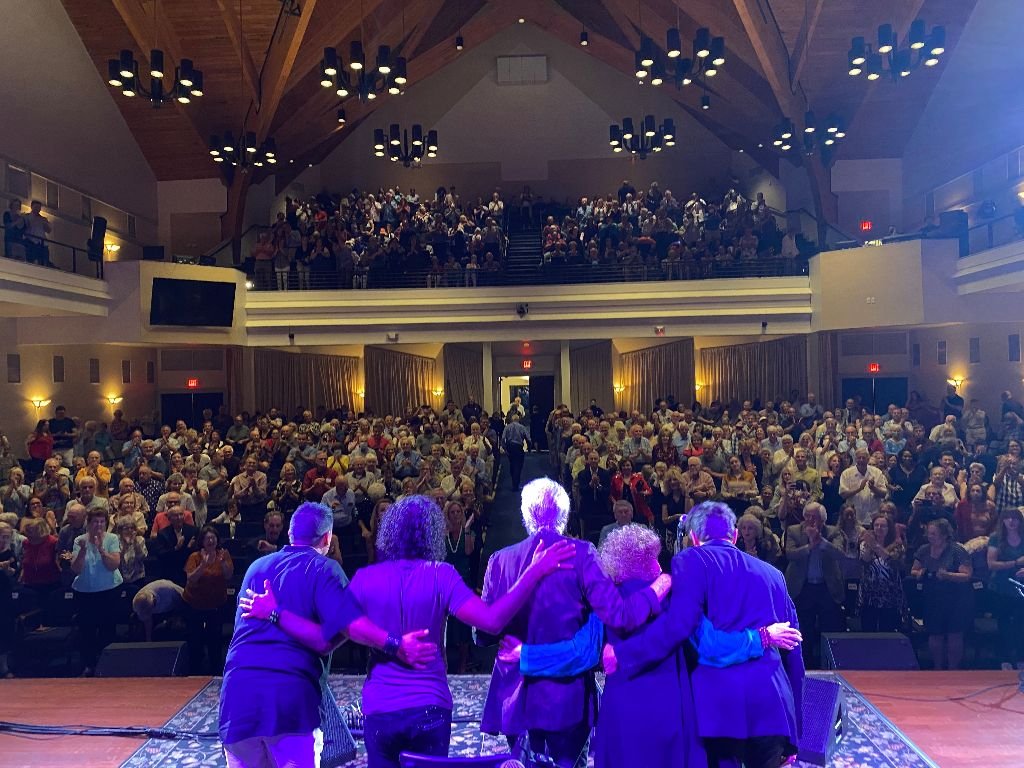Click Image to Download!
For Herb Alpert, life is an unending stream of melody. This fall, Alpert will release his latest visionary album, 50, the title of which holds great significance for him. It carries a potent double meaning, celebrating the fact that it is Alpert’s 50th LP, as well as his five-decade anniversary with his wife and collaborator Lani Hall. The album distills everything that makes a great Herb Alpert release, combining evocative originals and ingenious covers from throughout pop music history, with Alpert’s unmistakable trumpet melodies leading the action.
The album’s title is also apt because a large percentage of the songs on 50 date back to the 1950s, including pop-vocal, rock’n’roll, and jazz favorites. It was the decade when Alpert got his start in the record industry, still a few years out from his career-making success with the Tijuana Brass—see the era-defining albums 1962’s The Lonely Bull, 1965’s Whipped Cream and Other Delights, and more—the young songwriter was learning lessons that helped him shape his signature musical voice. By his own account, Alpert’s most instructive experience from this time came while working with the late Sam Cooke in 1959. Cooke showed Alpert a lyric that Alpert thought was “the corniest thing I had ever [seen].” Then he heard Cooke sing it.” The soul icon’s moving delivery took his breath away.
“That was an a-ha moment for me,” Alpert recalls. “I always say ‘it’s not what you do, it’s how you do it.’”
One of the lead tracks on 50 offers a callback to this time period in Alpert’s life, immortalizing a crucial moment in his musical coming-of-age. He includes a playful take on The Chords’ 1954 doo-wop smash “Sh-Boom,” a suggestive, onomatopoeia-filled novelty hit. Alpert, who was steeped in the classical music world at the time, remembers hearing it at a party in the mid-‘50s: “I hadn’t heard anything like that before. It touched me…the melody and the obtuse lyric. There was something special about the feeling of it. That was the start of me looking at pop music.” In Alpert’s version, vocal samples from the original recording are interwoven into the instrumental like wisps of memory.
Integrating modern techniques like this into retakes of older songs is one of Alpert’s signatures. His tasteful adaptability is part of what has helped keep him at the front of the cultural consciousness for seven decades. His 1979 club smash “Rise” gave him a disco-era hit and “Diamonds,” his state-of-the-art single with Janet Jackson in the late ‘80s, was an MTV staple. Seeing the possibility of fresh sounds in pop music is also what made him a paradigm-shifting force at A&M Records, where he brought on juggernaut acts in disparate styles, including Jackson, The Police, Cat Stevens, and crucially The Carpenters (whose signing Alpert calls one of the proudest moments in his career).
In his albums of the 21st century, Alpert has continued to follow the innovations of newer artists while refining his unmistakable “less is more” style of trumpet playing and arranging. His recent work combines acoustic and electronic sounds while revisiting music across disparate eras of pop, including ‘20s and ‘30s jazz standards, Beatles favorites, and more, with periodic turns from his wife Lani on vocals. This combination of the vintage and the au courant continues to resonate with audiences; Alpert’s last two LPs, 2022’s On the Sunny Side of Street and 2023's Wish Upon A Star, peaked at #5 and #1, respectively, on the jazz charts.
Alternately playful and contemplative, 50 continues in the spirit of these releases, with Alpert offering his take on everything from bossa nova (“Corcovado”), Broadway-born standards (“Baubles, Bangles, & Beads”), surf-rock mood pieces (“Sleep Walk”), hard-bop tunes (“Jeannine”) and Elvis hits. The Presley favorite “Are You Lonesome Tonight?” is the album’s oldest composition. Written in 1927, it embodies everything Alpert looks for in a tune: “simple and striking at the same time,” he says. Alpert gives the melody the most space of any on the album; his trumpet line cuts through, stark and intimate, over a bed of piano and synthesized strings.
The originals scattered throughout 50 sit comfortably up against these indelible melodies from bygone eras, reminding us how many generations of pop Alpert’s own compositional sound has endured through. There is the opener and lead single “Dancing Down 50th Street,” an infectious dance track mixing the flavor of his Tijuana Brass days with a modern groove, and the bluesy and stylish “Where Do We Go From Here,” with its front-line-ready New Orleans flair. A particular favorite of Alpert’s is “Morning Mist,” a dreamy ballad fit for a beach sunrise, with orchestral swells punctuating the trumpeter’s clarion lead lines. Spacious compositions like these are enhanced by the power, control, and sensitivity of Alpert’s trumpet playing, rare among horn players of his age.
For almost three-quarters-of-a-century, Alpert has always had the rare gift of being able to reach the greatest possible group of people through inhabiting an inimitable artistic voice. He has maintained and reshaped his sound through constant practice, recording, and performing (he continues to tour internationally, playing dozens of shows every year). At the time of this writing, he is already turning over ideas for multiple albums, including one reinventing some old Tijuana Brass favorites. His old melodies have drifted back to him lately, presenting him with fresh possibilities every time he picks up his trumpet to find his way around them again. Alpert notes that associates have asked him why he’d want to revisit some of his most ubiquitous compositions. Isn’t he sick of them? “‘Well, I haven’t done them this way before,’” Alpert tells them.
The sentiment crystalizes how one of popular music’s truest originals continues to find ways to connect and reconnect with himself and his audience. It is through his love of artistic kernels of inspiration—a couple of bars, a chord, a suggestive brushstroke—that seem to cut across time. “I’m never on a victory tour,” Alpert says. “I just need something that makes sense—that makes me feel like I’m contributing in a positive way to our society. I don’t think anyone’s any better than anyone else. We all have a ticket to this thing called life. We all have the opportunity to try to make the most out of it.”
























